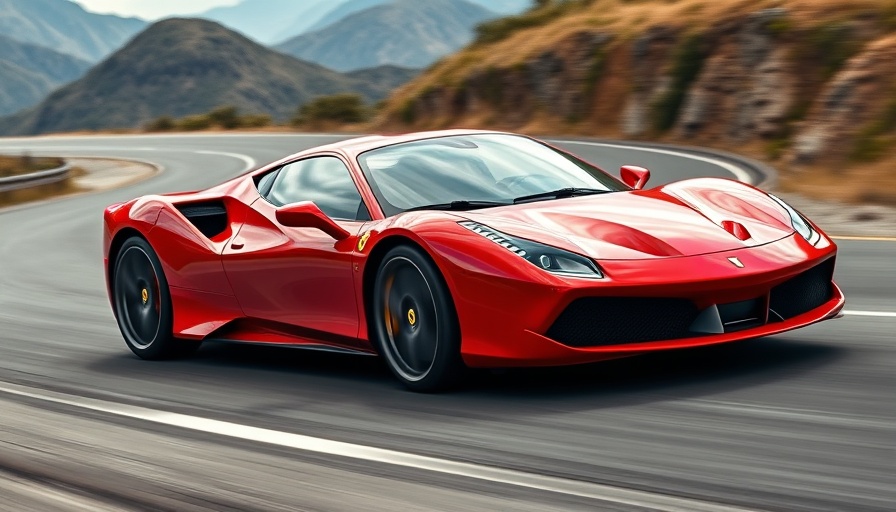
Ferrari's Strategic Approach to Possible U.S. Tariffs
As international trade policies continue to evolve, Ferrari is preparing to face potential U.S. tariffs on European automobiles. Comments made by CEO Benedetto Vigna during the recent CONVERGE LIVE event indicate that the iconic luxury car manufacturer is not merely waiting for the storm to pass but is actively engaging in 'scenario planning' to mitigate impacts.
Understanding the Tariff Landscape
The automotive industry has been under increasing pressure due to geopolitical tensions and proposed tariffs by the U.S. government, specifically targeting imports from Europe. President Trump's administration has threatened substantial tariffs—around 25%—which would significantly impact manufacturers dependent on complex supply chains that span borders. While companies like Ford and General Motors brace for potential losses, Ferrari seems to stand apart from the rest of the pack.
Why Ferrari is Less Exposed
Unlike many of its competitors, Ferrari produces all its vehicles in Italy. This exclusive manufacturing location allows Ferrari to maintain its brand prestige while also enabling it to pass potential cost increases onto its affluent customer base without greatly compromising sales. Analysts argue that Ferrari's luxury positioning and dedicated clientele provide a buffer against the adverse financial impacts of increased tariffs.
Countermeasures on the Horizon
Vigna's mention of 'countermeasures' indicates the company's proactive stance on navigating these turbulent waters. While he refrained from detailing specific strategies, the notion that Ferrari is readying itself for whatever may come demonstrates sound leadership at a crucial time. Furthermore, Ferrari's operational strength, which includes a reported 21% jump in net profits, empowers it to remain flexible amid changing market dynamics.
Future Considerations for the Luxury Market
With the first full-electric vehicle, the Ferrari Elettrica, set to debut later this year, the brand is not just diversifying its range but also positioning itself ahead of emissions regulations that could further complicate the tariff landscape. This model's launch, among others, caters to a market increasingly driven by sustainability, reflecting changing consumer preferences that favor innovative and environmentally-conscious options.
Opportunities Amid Uncertainty
The looming tariff discussions also present opportunities for redesigning sales strategies across the automotive sector. Dealerships, particularly those focusing on luxury vehicle sales, should consider integrating training programs that emphasize adaptability in uncertain market conditions. Training for auto sales professionals that emphasizes understanding global market dynamics and the ability to pivot sales strategies can help ensure sustainability in a shifting economic environment.
The Road Ahead for Ferrari and the Automotive Industry
It will be essential for both Ferrari and other automotive leaders to keep a keen eye on the shifting regulatory landscape, which affects not only pricing but also long-term strategic planning. Those who can pivot quickly will likely emerge stronger. Ferrari’s approach could serve as a blueprint for luxury automakers on how to navigate, adapt, and thrive.
As the automotive industry heads into uncharted territory with potential tariffs on the horizon, it’s clear that strategic foresight and adaptability will define the leaders of tomorrow. Whether you’re a dealership owner or an automotive enthusiast, staying informed about these dynamics can help guide your decisions in an increasingly complex world. Consider training your sales team to thrive amidst these changes!
 Add Row
Add Row  Add
Add 

 Add Row
Add Row  Add Element
Add Element 




Write A Comment